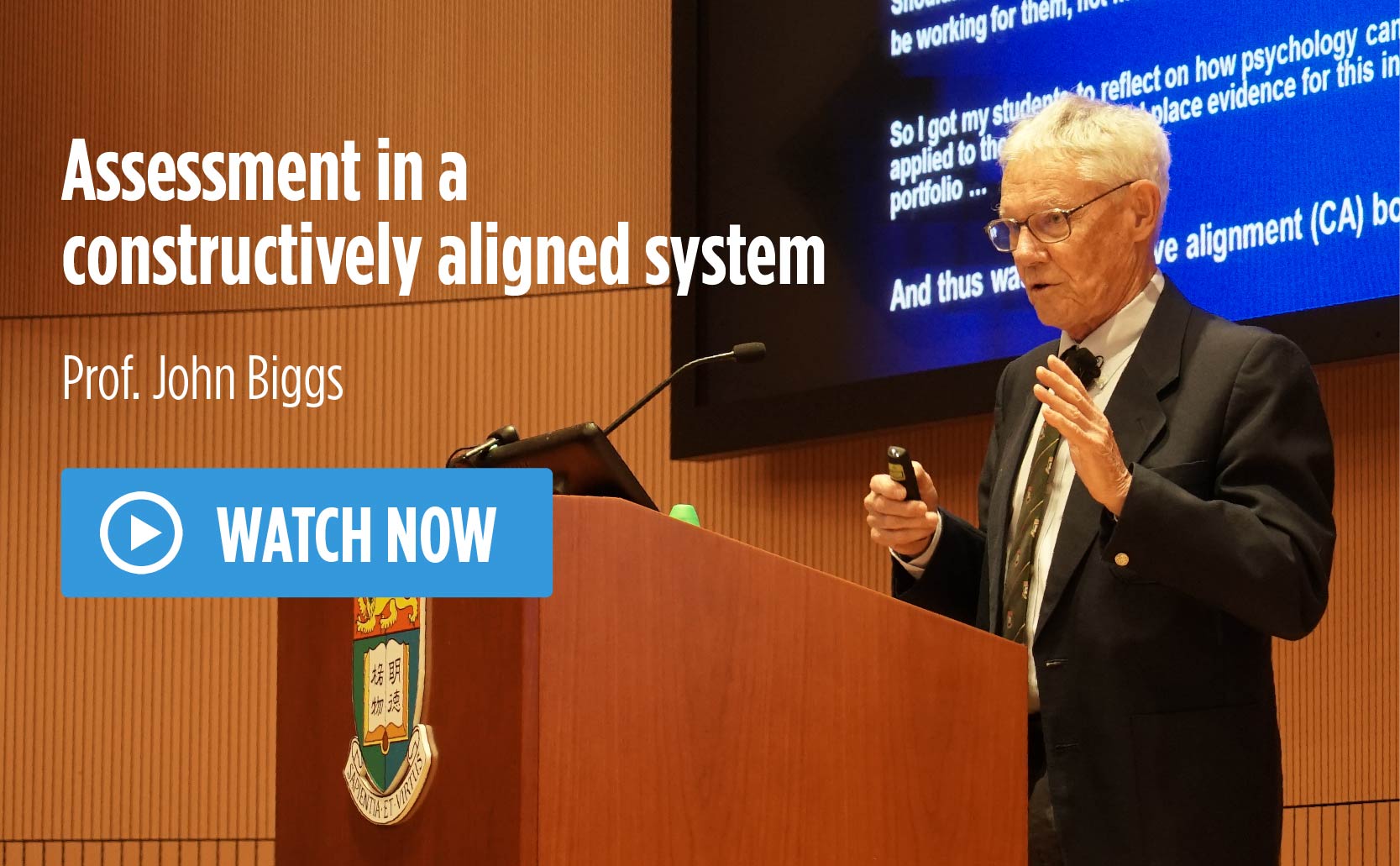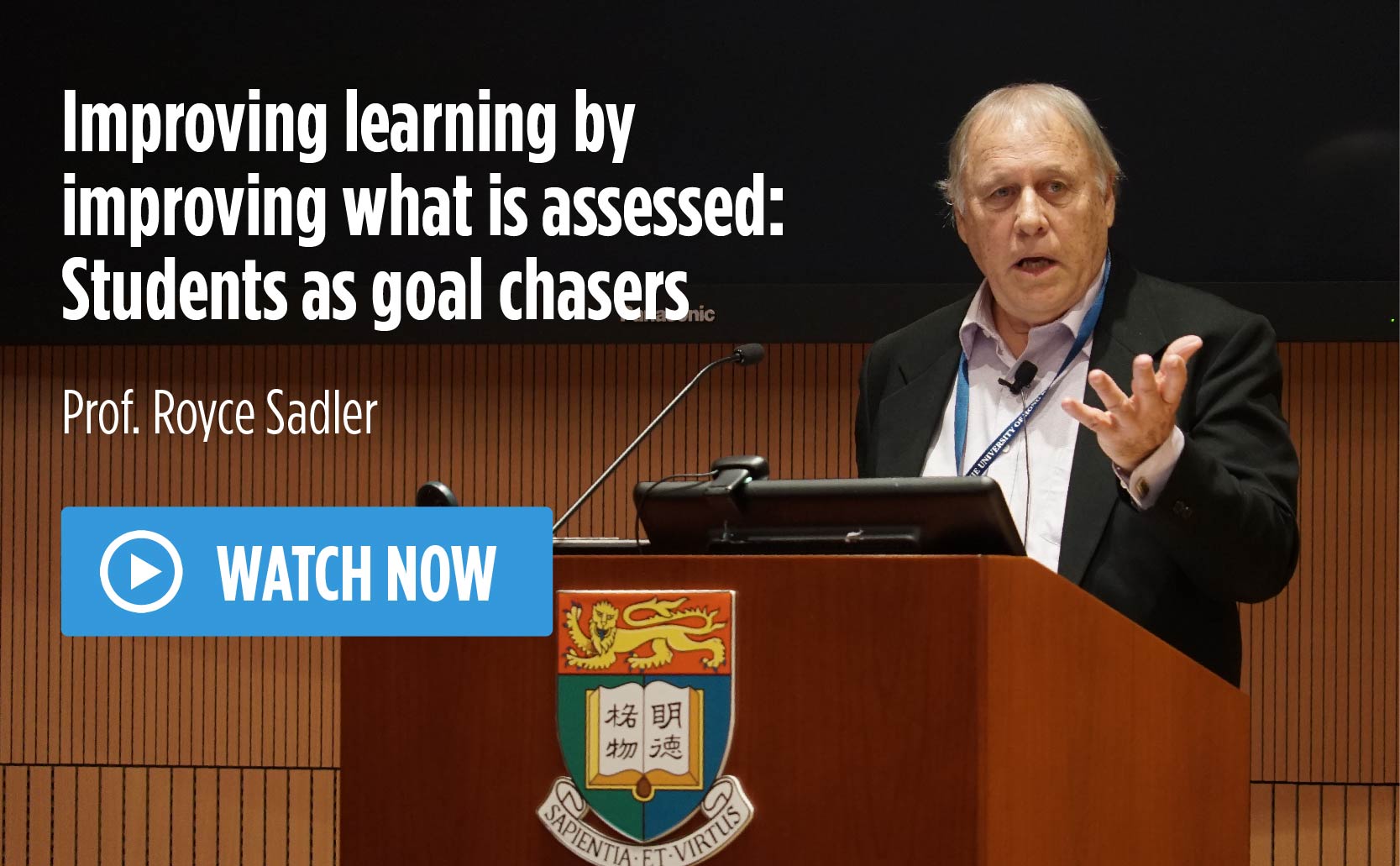Conference Theme and Sub-themes
We welcome submissions related to the conference theme, Assessment for Learning in Higher Education, and the following sub-themes:
1. Innovative Assessment Approaches
This theme examines innovative approaches to assessment and how these approaches can enhance learning. Proposals within this theme may provide evidence-based descriptions of innovative assessment and feedback practices in higher education.
Examples:
- Authentic Assessment
- Technology Enhanced Assessment
- Peer- and Self-Assessment
2. Students’ Responses to Assessment
This conference theme draws our attention to the growing body of research on students’ perception towards assessment, giving conference participants an opportunity to present their research works on students’ experiences of assessment: their attitudes, responses, actions towards assessment and feedback, what helps their learning, and what hinders it..
Examples:
- Students’ Participation in Assessment
- Stakeholders’ Perception of Assessment
3. Assessment and Feedback
What we assess, how we assess, and the standards we apply to our assessments of student learning is of continuing concern in higher education. With the continuing concern, as well as a proven reality, that most feedback does not provide students with a meaningful learning opportunity, there are increasing pressures on institutions, faculties, and teaching staff to change and adapt their assessment practices to changing situation. This strand seeks research and papers which describe and analyse the increasing importance of using assessment and feedback as a meaningful learning experience.
Examples:
- The Delivery of Feedback on Assessed Work
- Dialogic Approaches to Feedback
- Assessment and Feedback/forward
- Summative and Formative Assessment
- Using Rubrics to Enhance Student Learning
- Assessment Research: Theory, Method and Critique
4. Institutional Initiatives in Assessment
This strand recognises the importance of the institutional context in promoting sustainable assessment for learning. It invites research which tackles assessment issues at the institutional level. Topics include, but are not confined to, the alignment of assessment with learning outcomes, the collection of evidence of student learning, quality assurance processes, and benchmarking for accountability in the assessment of student learning outcomes.
Examples:
- Assessment Challenges, Opportunities and Impact on Teaching and Learning
- Assessment Culture and Policy
- Aligning Learning Activities and Assessment
- Direct Evidence and Indirect Evidence
- Quality Assessment and Implementation Issues
- Teacher Judgment and Accountability
- Professional Development
5. Assessing Professional Competencies
A fundamental aspect of work-based learning, capstone experiences, service learning, and other forms of experiential learning is the development of professional competencies and transferable skills. This strand will cover various issues and challenges in the assessment of professional competencies and transferable skills, inviting discussion and recommendations leading to the enhancement of assessment and feedback practices in experiential learning.
Examples:
- Assessment in the Workplace
- Assessment to Enhance Life-long Learning
- Assessing Transferable Skills
- Assessment and Experiential Learning
6. Other Issues in Assessment for Learning
This conference strand recognises the complexity of assessment and therefore welcomes papers which address other key issues in the assessment for learning.





